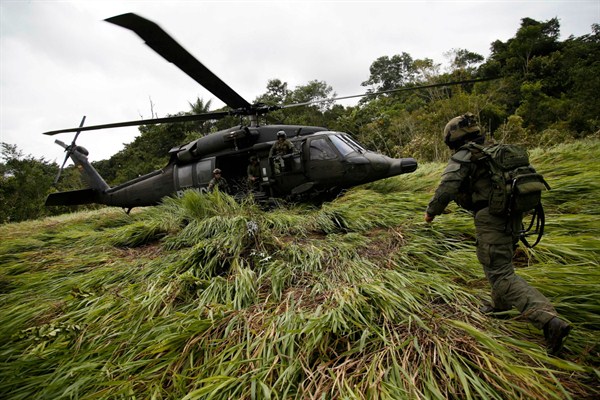In 1821, Gen. Francisco de Paula Santander told a congress full of statesmen, “Guns will give you your independence, but laws will help you keep it.” Santander was addressing representatives of Gran Colombia, the political state that once covered most of northern South America, including what is today Colombia and Venezuela. Ten years later, Gran Colombia split up, and Colombia and Venezuela set off on separate paths. But both countries disregarded Santander’s statement, as their histories have been marked by a string of armed conflicts that eroded laws and justice.
Still, after decades spent fighting militias and rebel movements while enduring rampant human rights violations and half-baked attempts at demobilization, Colombia has somehow managed to hold its wobbly democratic institutions together. Now, right as Colombia gains its footing with a fragile peace deal with the FARC rebel group that could solve some of its longstanding problems and strengthen its democracy, the failed state next door in Venezuela poses a new threat—one South America has almost no experience in dealing with.
Until recently, the impact of the crippling economic and political crisis under President Nicolas Maduro has been largely confined to Venezuela. But that’s changing. Its neighbors are starting to feel the effects, having absorbed at least 2.6 million Venezuelan refugees fleeing hyperinflation, rampant crime and a dearth of medicine and food. About a million of them have settled in Colombia. As long as Maduro’s authoritarian regime holds on to power, the crisis will deepen and Colombia could bear the brunt—not just the influx of refugees and their humanitarian needs, but the threat of criminal networks that hide just over the border in lawless Venezuela, aided by Maduro’s regime.

